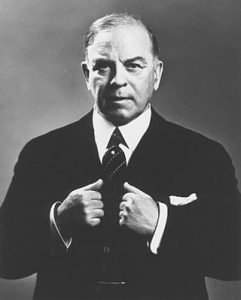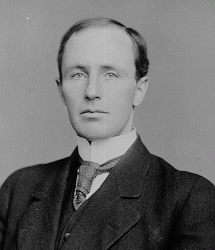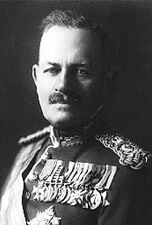There are many lessons learned in the earlier days of Canada’s history that are totally lost on Canadians today. For example, the other day (during the 2004 election campaign) I mentioned to someone that the Liberals could be asked to form a government even if the new Conservative Party won more seats (assuming a minority of seats for each). It was impossible for this person to comprehend how this could happen, so I have decided to write it down. The Liberal government of William Lyon Mackenzie King was elected in 1921 with a minority of seats in the Commons (Liberal (116); Progressive (50); Conservative (63); Labor (3); and Other (3). Under the rules of Parliament the Liberals were asked to form the government because they were able to pull together support from the Progressives. In 1925, he asked the Governor General, Lord Byng, to dissolve parliament so that an election might return a majority government to the House. The election of 1925 did not give William Lyon Mackenzie King the result he was after. In fact the reverse was true. The Conservative, under Arthur Meighan, won the day (Conservative (114); Liberal (102); Progressive (24); Labour (2); and Other (3) but not the government. But Byng asked King and not Meighan to form the government. How was it possible?
Following the election both Arthur Meighan and William Lyon Mackenzie King tried to woo the support of members of the Progressive party. William Lyon Mackenzie King succeeded to get enough support that his “seat total” then surpassed Meighan’s. King got the go-ahead.
Following this 2004 election the same situation could happen. The Conservatives could win more seats than the Liberals but if the Liberals can win more support from the Bloc or NDP (enough to form a “majority” government) they can be asked to form the government over the Conservatives.
The King-Byng affair in 1925 demonstrated how the political system in Canada works when minority governments are elected. However the King-Byng affair also set another precedent.
In 1926, King’s minority government became embroiled in a Customs scandal (See.. so called “Adscam’s” are not something new!). King asked the Gov Gen to dissolve parliament. The tradition up to that point was that the Gov Gen did whatever the PM told him to do, when it came to Parliament. However this time Byng answered with a resounding – No. In a heated exchange of telegrams both parties set their ground.

Letter from William Lyon Mackenzie King to Governor General Byng, 28 June 1926:
Your Excellency having declined to accept my advice to place your signature to the Order-in-Council with reference to a dissolution of parliament, which I have placed before you to-day, I hereby tender to Your Excellency my resignation as Prime Minister of Canada. Your Excellency will recall that in our recent conversations relative to dissolution I have on each occasion suggested to Your Excellency, as I have again urged this morning, that having regard to the possible very serious consequences of a refusal of the advice of your First Minister to dissolve parliament you should, before definitely deciding on this step, cable the Secretary of State for the Dominions asking the British Government, from whom you have come to Canada under instructions, what, in the opinion of the Secretary of State for the Dominions, your course should be in the event of the Prime Minister presenting you with an Order-in-Council having reference to dissolution. As a refusal by a Governor-General to accept the advice of a Prime Minister is a serious step at any time, and most serious under existing conditions in all parts of the British Empire to-day, there will be raised, I fear, by the refusal on Your Excellency’s part to accept the advice tendered a grave constitutional question without precedent in the history of Great Britain for a century, and in the history of Canada since Confederation. If there is anything which, having regard to my responsibilities as Prime Minister, I can even yet do to avert such a deplorable and, possibly, far-reaching crisis, I shall be glad to do so, and shall be pleased to have my resignation withheld at Your Excellency’s request pending the time it may be necessary for Your Excellency to communicate with the Secretary of State for the Dominions.
Source: Public Archives of Canada, King Papers, Letter from William Lyon Mackenzie King to Governor General Byng, 28 June 1926.
Letter from Governor-General Byng to William Lyon Mackenzie King, 10 29 June 1926:
I must acknowledge on paper, with many thanks, the receipt of your letter handed to me at our meeting yesterday. In trying to condense all that has passed between us during the past week, it seems to my mind that there is really only one point at issue. You advise me “that as, in your opinion, Mr. Meighen is unable to govern the country, there should be another election with the present machinery to enable the people to decide”. My contention is that Mr. Meighen has not been given a chance of trying to govern, or saying that he cannot do so, and that all reasonable expedients should be tried before resorting to another Election. Permit me to say once more that, before deciding on my constitutional course on this matter, I gave the subject the most fair-minded and painstaking consideration which it was in my power to apply.

I can only add how sincerely I regret the severance of our official companionship, and how gratefully I acknowledge the help of your counsel and co-operation.
Source: Public Archives of Canada, King Papers, Governor General Byng to William Lyon Mackenzie, 29 June 1926.
The final letter was sent by Byng to his Boss in London:
Letter from Governor General Byng to Mr. L. S. Amery, The Secretary of State for Dominion Affairs, 30 June 1926.
As already telegraphed, Mr. Mackenzie King asked me to grant him dissolution. I refused. Thereupon he resigned and I asked Mr. Meighen to form a Government, which has been done. Now this constitutional or unconstitutional act of mine seems to resolve itself into these salient features. A Governor General has the absolute right of granting dissolution or refusing it. The refusal is a very dangerous decision, it embodies the rejection of the advice of the accredited Minister, which is the bed-rock of Constitutional Government. Therefore nine times out of ten a Governor General should take the Prime Minister’s advice on this as on other matters. But if the advice offered is considered by the Governor General to be wrong and unfair, and not for the welfare of the people, it behooves him to act in what he considers the best interests of the country. This is naturally the point of view I have taken and expressed it in my reply to Mr. King (text of which is being telegraphed later).

You will notice that the letter in question is an acknowledgement of a letter from Mr. King (text of which is also being telegraphed later) appealing that I should consult the Government in London. While recognizing to the full help that this might afford me, I flatly refused, telling Mr. King that to ask advice from London, where the conditions of Canada were not as well known as they were to me, was to put the British Government in the unfortunate position of having to offer solution which might give people out here the feeling of a participation in their politics, which is to be strongly deprecated.
There seemed to me to be one person, and one alone, who was responsible for the decision and that was myself. I should feel that the relationship of the Dominion to the Old Country would be liable to be seriously jeopardized by involving the Home Government; whereas the incompetent and unwise action of a Governor General can only involve himself.
I am glad to say that to the end I was able to maintain a friendly feeling with my late Prime Minister. Had it been otherwise, I should have offered my resignation at once. This point of view has been uppermost in my mind ever since he determined on retaining the reins of office (against my private advice) last November. It has not been always easy but it was imperative that a Governor General and a Prime Minister could not allow a divergent view-point to wreck their relationship without the greatest detriment to the country.
Mr. King, whose bitterness was very marked Monday, will probably take a very vitriolic line against myself — that seems only natural. But I have to wait the verdict of history to prove my having adopted a wrong course and this I do with an easy conscience that, right or wrong, I have acted in the interests of Canada, and have implicated no one else in my decision.
I would only add that at our last three interviews I appealed to Mr. King not to put the Governor General in the position of having to make a controversial decision. He refused and it appeared that I could do no more.
Source: Public Archives of Canada, Byng Papers, Letter from Governor General Byng to The Secretary of State for Dominion Affairs, 30 June 1926.
Did Byng do the right thing by refusing King’s request for a new election? Other historians may disagree but I believe that that he did right. If a single independent MP, duly elected in Canada, can garner enough support within a minority situation then that person should be called on to form a government.
It is unlikely to happen… but then…? That’s why it is a Mystery of Canada!
Leave a Reply